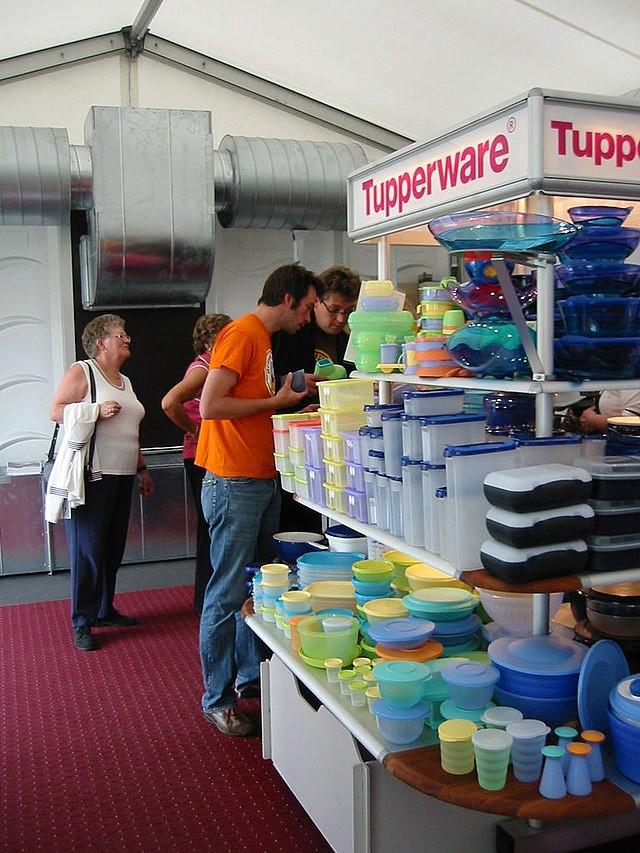Tupperware, once a household name synonymous with food storage, has filed for Chapter 11 bankruptcy after years of financial decline and dwindling market relevance. The company, famous for its plastic containers and direct sales model, announced the filing on Tuesday as it seeks to restructure and explore strategic alternatives to stay afloat in an increasingly competitive marketplace.
Laurie Ann Goldman, Tupperware's president and CEO, said in a statement that the company has been hit hard by macroeconomic challenges in recent years. "This process is meant to provide us with essential flexibility as we pursue strategic alternatives to support our transformation into a digital-first, technology-led company," she said. Goldman added that the bankruptcy would allow the 78-year-old company to continue operations while it works on revitalizing its business.
Tupperware's decline has been years in the making, accelerated by changes in consumer behavior and growing competition from eco-friendly alternatives. Known for its "Tupperware parties"-a hallmark of its direct sales model-the company revolutionized how kitchen products were sold in the mid-20th century. However, in more recent years, it struggled to maintain relevance, especially among younger consumers who have increasingly turned to competitors that offer more environmentally sustainable products.
Susannah Streeter, head of money and markets at Hargreaves Lansdown, noted the company's branding struggles. "The party is over for Tupperware," Streeter said. "There is still a chance a buyer for the business can be found but, with plastic seen as far from fantastic among eco-aware consumers, revitalizing the brand will be an uphill struggle."
Tupperware's struggles came to a head earlier this year. In April, the Florida-based company disclosed in a regulatory filing that it was on the verge of collapse if it couldn't secure more financing. A lifeline came four months later when Tupperware reached a deal with its creditors, reducing its interest payments by $150 million and securing $21 million in new financing. The company was also able to reduce its outstanding debt by $55 million. However, despite these efforts, its financial position continued to deteriorate.
Tupperware's woes extend beyond its sales model. The company faced regulatory pressures as well. Earlier this year, it received a non-compliance notice from the New York Stock Exchange for failing to file its annual results with the Securities and Exchange Commission. With shares plummeting by over 75% in 2023 alone, Tupperware's stock was last traded at just 50 cents.
In addition to financial pressures, the company closed its only U.S. manufacturing plant, located in South Carolina, resulting in 148 layoffs. According to filings, Tupperware reported more than $1.2 billion in total debt and $679.5 million in assets as part of its bankruptcy proceedings.
Goldman, who took the helm of Tupperware in October 2023 after a leadership shake-up, emphasized that the company isn't going anywhere. In her statement, she sought to reassure employees, independent sales consultants, and customers. "Whether you are a dedicated member of our Tupperware team, sell, cook with, or simply love our Tupperware products, you are a part of our Tupperware family," she said, adding that the brand will continue to serve its customers throughout the bankruptcy process.
Historically, Tupperware has employed a unique direct sales model that allowed women to run their own businesses by hosting Tupperware parties, a strategy that helped the brand explode in popularity in the mid-20th century. In fact, the company's success in empowering women was one of its defining features. However, in recent years, the rise of online shopping and changing consumer preferences have made this model increasingly outdated.
Tupperware only began selling its products through retail outlets in 2022, when it launched in Target stores. Despite this move toward more traditional retail, it has not been enough to reverse the company's fortunes.
As part of its bankruptcy strategy, Tupperware has hinted at a pivot toward digital sales. The company plans to further its transformation into a "digital-first, technology-led" organization, though specific plans for this transition have not been fully disclosed.





